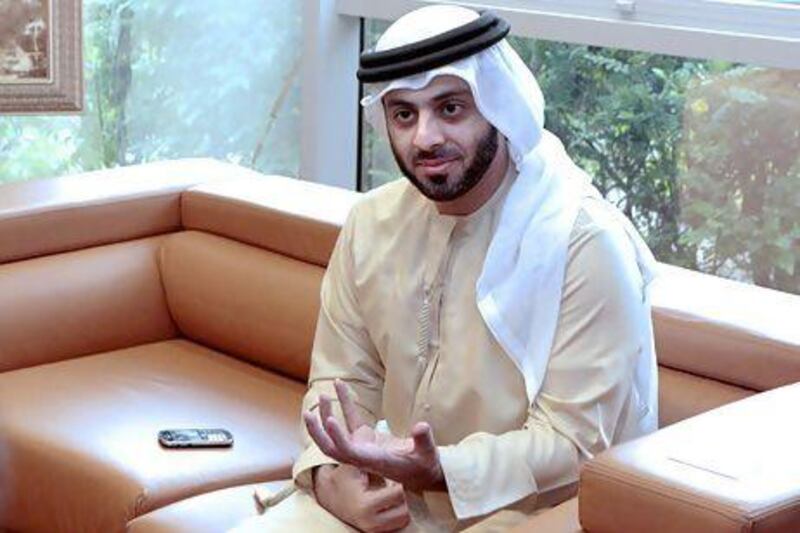Dubai Internet City (DIC) is to focus on nurturing and attracting local start ups for future growth instead of multinational companies.
"Free zones in the last seven years focused on building the infrastructure. Now we have the buildings, the multinationals, so it is time to focus on the SMEs [small and medium-sized entreprenurs] to build the industry," said Malek Al Malek, the managing director at DIC and Dubai Outsource Zone.
"The time we spend to make sure entrepreneurs are guided and become sustainable, is the most crucial part now." This year, Facebook and LinkedIn joined the likes of HP and IBM to open up offices in DIC.
"We are on the radar of most companies that want to enter the Middle East. The focus in the last two years from our side has been to complement the ecosystem. We continue to attract big multinationals but we are now also promoting start ups and local technology companies from this region," said Mr Al Malek
To sustain an ICT ecosystem, DIC is in need of start-ups and small entrepreneurs, said Mr Al Malek.
With the likes of Google, Yahoo, Facebook and now PayPal, which is set to establish a presence in DIC, they are helping to boost the ecosystem by providing platforms for small businesses to get online.
One initiative is the Majid Bin Mohammed Innovation Centre In5, an incubation centre which Mr Al Malek describes as the first specialised technology incubation within an ICT hub in the region.
"We are lucky to have had this industry develop in the manner it has. It is only natural for us to have a programme that supports entrepreneurs," said Mr Al Malek.
DIC aids entrepreneurs through networking events, demo days, business guidance, investment, involvement of the Ministry of Education and making use of the multinationals for mentoring and support. One company that helps with In5 is Qualcomm, manufacturers of mobile chips used to power smartphones. "We deal with all the mobile start-ups and ideas that come through the DIC," said Ziad Matar, the head of the Middle East and Central Asia division at Qualcomm. "There is a lot of interest, we are receiving an idea a day."
DIC has yet to announce which companies and ideas have been accepted into In5, but once the centre has been officially opened, an announcement is expected soon.
E-commerce is also set to play a critical role in the growth of DIC according Mr Al Malek, with about 20 per cent growth in the number of applications from e-commerce companies over the past year. "E-commerce in the region today is yet to be penetrated. Most of the e-commerce transactions are done in travel, tourism and government services. "Very few transactions are for merchandise and retail. The retail chains are not fully e-commerce friendly and users are not yet mature enough to actually perform those electronic transactions," said Mr Al Malek. "This is a good example of how entrepreneurs can be involved in this area."
DIC has been growing at a rate of about 15 per cent since 2008 and currently houses more than 1,400 companies.
In the first half of this year, 85 new companies joined DIC, with similar numbers expected for the second half of the year. In 2011, there were 166 new additions, while 60 companies expanded their operations in the free zone.





